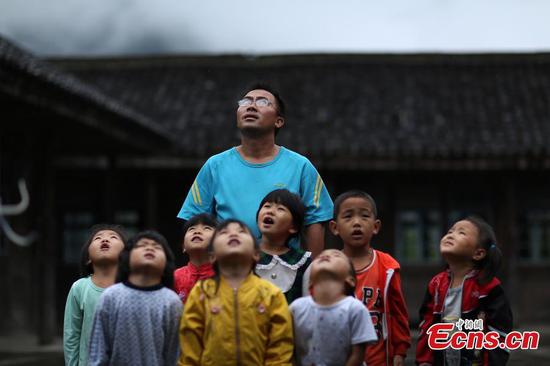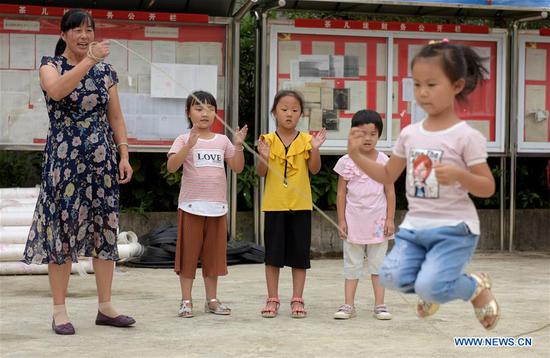Three departments responsible for implementing family planning policies have been removed from the new structure of the National Health Commission, the commission has announced on its website.
The departments have been replaced with a new one that will focus on population monitoring and family development, and will be responsible for putting forward advice related to birth policies.
Three new departments have also been set up to take charge of work related to family health, eldercare and occupational health, according to the announcement, released on Monday.
It detailed 14 specific responsibilities of the commission after the organizational restructuring, including formulating national health policy, coordinating and deepening medical and healthcare system reforms, disease prevention and control, and formulating pharmaceutical policies.
After restructuring, the commission now has 21 departments, with 525 administrative staff members. It emphasized the importance of building a comprehensive system for disease prevention and tackling challenges arising from an aging population.
In March, "family planning" was dropped from the commission's name as part of a sweeping government overhaul to reform official departments and reduce red tape.
The removal of the three departments that used to enforce family planning policies triggered public conjecture that the government may be planning to scrap long-standing limits on the number of children its citizens can have.
"The restructuring doesn't mean that family planning will no longer exist," said Yuan Xin, a population studies expert at Tianjin's Nankai University.
"But in the new era, the major tasks have shifted from birth control to providing comprehensive reproductive services in support of the development of families."
As of 2017, people age 60 and older accounted for about 16.2 percent of China's population.
About a third of the country's population will be over 60 by 2050, according to the China National Working Committee on Aging.
By comparison, the number of working-age people is set to fall to 700 million-a decline of nearly a quarter.
Alarmed by the rapidly aging population and shrinking workforce, the government relaxed the family planning policy, which was introduced in 1979, and implemented a two-child policy in 2016.
"The establishment of the new department to serve the aging population shows the government's attention to the elderly. But issues related to an aging population cannot simply be solved by boosting the birthrate. Instead, enhancing our competitiveness in the global market and maintaining stable economic growth is the solution," Yuan said.
Apart from the commission, several other ministerial departments recently released restructuring plans, such as the Ministry of Culture and Tourism and the Ministry of Ecology and Environment.


















































